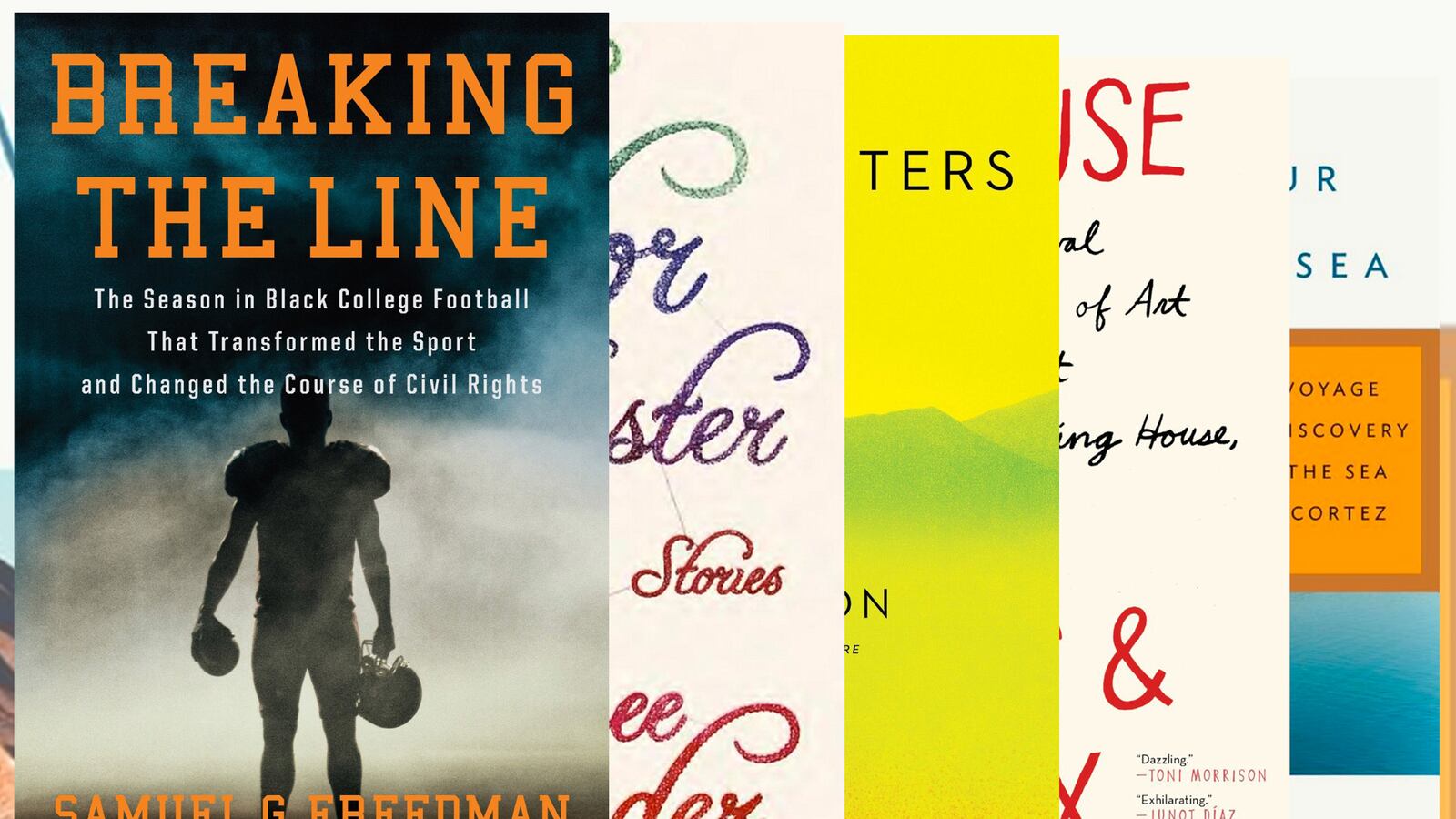Snow Huntersby Paul Yoon
A North Korean defector tries to capture peace in Brazil after the Korean War.

One symptom that oppressive Stalinist regimes, of which North Korea is a fine example, tend to visit on their citizens is an intentional infantilization, where knowledge of the true state of the world is kept hidden in favor of the party-approved truths. When someone with this background somehow finds their way out, then, they view things with wonderment that those of us raised in free societies can scarcely imagine. Snow Hunters, Paul Yoon’s first work since 2009’s lauded Once the Shore, tells the story of Yohan, a North Korean soldier who defects after being captured in the Korean War and settles in Brazil, where he stumbles into work as the apprentice of a Japanese tailor. Here he slowly comes to grips with his past as he builds a new home for himself, with the help of a group of locals. Yoon shows that he knows how to write properly “economic” prose, reminiscent, perhaps, of Ha Jin, but he also knows when to let a bit more of the iceberg show through. In his employment of such a style (which relies on the careful establishment of a mood and therefore resists excerpting), Yoon has mirrored beautifully the motion of a mind, overloaded in the stresses of war, as it struggles to accept the possibility of peace.
The Color Master by Aimee Bender
A collection of short stories that shows off Bender’s staggering authorial tool kit.

When reviewing a book of short stories, it helps to find the connective tissue, some shared theme, style, or concern that unites the disparate stories into a larger statement or artistic project. However, in her new collection entitled The Color Master, Aimee Bender (author of The Particular Sadness of Lemon Cake) shows off her skill in so many different modes of storytelling that the most prominent unifying element might be virtuosity itself. Bender is equally as proficient in M.F.A. realism, like the story in which a couple’s degrading relationship is brought into focus through the wife’s peculiar new obsession with having her husband pay for sex, as she is in beguiling, poetical little three-pagers that intentionally resist accessibility, like the opening story about the girl who refuses to eat apples and is subsequently assaulted by her exclusively apple-eating associates. There are also fairly tales, linguistic examinations, cosmological wonderings, and a story that begins normally, shifts so slowly into ghost story, that the reader is caught off guard and truly creeped out, and finishes up as something else entirely. This book is a lesson in almost every mode of the short story and shouldn’t be missed.
Hothouse by Boris Kachka
A romp through the history of venerable publisher Farrar, Straus, and Giroux.

Although there are many different apparatuses that exist to bring art and entertainment to the media-consuming public, there is little that can compare to a publishing house, with its mix of massive literary egos, struggling midlisters, competitive editors, and the moneymen signing the checks, all bound up with the dedication (one hopes) to “literary merit.” Hothouse, from New York magazine contributing editor Boris Kachka, is an exhaustive study of legendary New York publishing house Farrar, Straus, and Giroux, which has produced a record-setting 25 Nobel Prize winners. The book, based on five years of research and dozens of interviews, is incredibly comprehensive, not only in the way that it shows FSG working as a single machine, but also the various allegiances and power struggles that went on, and continue, in its halls. Despite Kachka’s admiration and nostalgia for the house, this is far from hagiography, and he’s not afraid to make people look bad: he writes that Roger Straus was “a man who could be cheap, vulgar, classist, and sexist all in one gratuitously cruel remark.” Whether you work in publishing or are just interested in the making of America’s literary zeitgeist, you’ll want to have an opinion about this book, as it’s bound to upset some people. And what’s more fun than a good literary spat?
Breaking the Line by Samuel G. Freedman
A look at a the struggle for the 1967 black college championship with the backdrop of the struggle for civil rights.

It’s easy to think of the history of racism in American sports as a very long series of ugly incidents: a slur hurled at a team bus, a player targeted for violence, a coach fired for starting a quarterback with the wrong skin color. Those things did happen, but consider this point, which highlights just how woven into Southern existence racism was and how much forethought was necessary to avoid it: when the all-black Grambling College football team drove 500 miles over nine hours to play Tennessee state in 1967, the team got off the bus only once, to eat lunch in the employee cafeteria of a black-owned Memphis business. To display black football players anywhere else would be to risk a confrontation. Breaking the Line, by New York Times columnist Samuel G. Freedman, is the story of the competition for the 1967 black college championship, told through the lives of the coaches and quarterbacks who endured prejudice at every turn, all while paving the way for integration of the sport of football at all levels. There is plenty of inspiring politics here, but the real pleasure is in the X’s and O’s: Freedman describes games with the proper mixture of glory and suspense that football can generate even when it’s not being used as a catalyst for social change.
Telling Our Way to the Sea by Aaron Hirsh
A biologist leads us to discover where we came from and where we’re going.

Skill as a scientist and skill as a writer rarely inhabit the same person, but when they do, the results can be incredible. (Both George Saunders and Rick Bass were trained as geologists.) Perhaps it is something about the act of unveiling truth that unites the two endeavors, some dedication to uniting discrete facts to create meaning. In Telling Our Way to the Sea, biologist Aaron Hirsch describes a decade’s worth of trips that he took with his wife and students into the Sea of Cortez to study where we came from biologically and where we’re headed ecologically. There is all sorts to enjoy here: adventure, exploration, local history, rigorous science patiently explained, even some sections about conquistadors (it’ll make sense when you get there), all told in deft prose. But what binds this book is Hirsh’s infectious enthusiasm as he leads the reader to “wander out along the paths of narrative that originate in an organism.”






